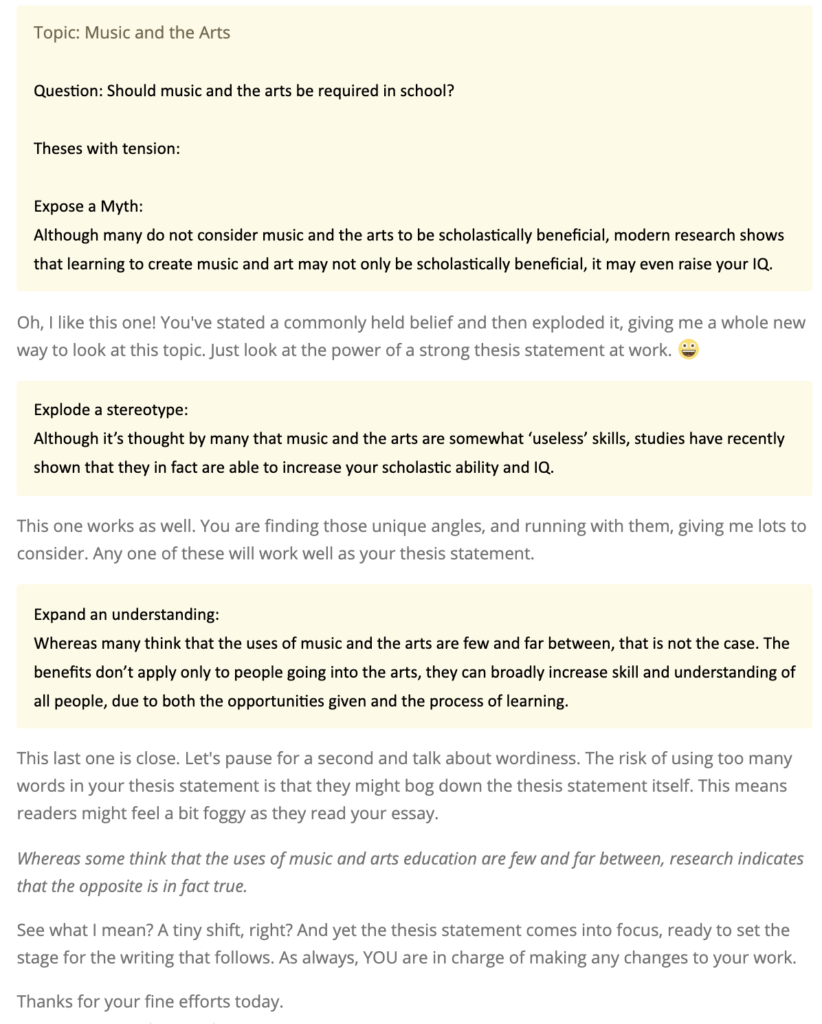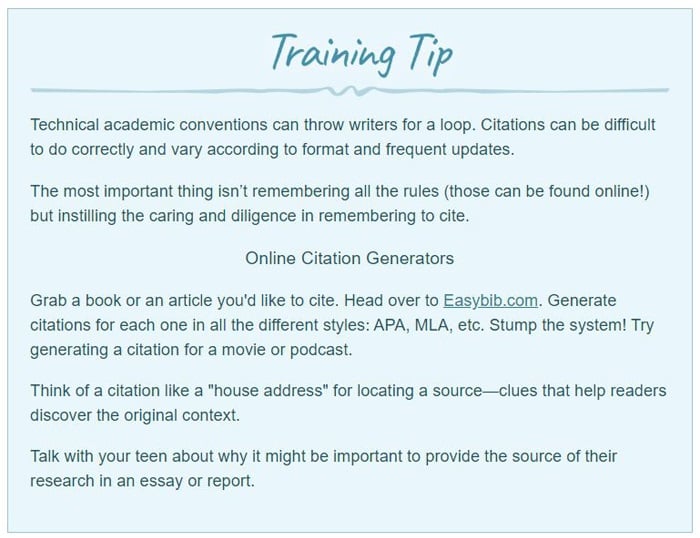
How it started: dinosaurs, daisy chains, phonics and lapbooks.
How it’s going: citations, quotations, note-taking and ChatGPT.
Yikes! The high school years are upon you and it’s a whole new world.
You know you want to prepare your kids for college writing, but the task can seem daunting.
- How much essay writing should they be doing?
- How do I best prepare them for what’s next?
- What really matters?
Add to the mix worries of the rising use of AI writing generators, and you may feel like giving up before you even start.
Let Us Help!
Brave Writer is here to shine a light on the high school writing path.
Kirsten Merryman (Director of Online Classes) and Jen Holman (class writer and coach) give you practical tips and show you how our writing program can help you address these burning concerns:
- Expectations from colleges
- Increasing issues related to AI
- Gaining age appropriate skills
- Covering all the bases
- Why it matters to infuse your essays with authenticity
Discover how to balance AI and human creativity in your teen’s writing journey.
Free Webinar Replay
Listen as we talk about High School Writing in the Age of AI.
More Resources
- 100+ Creative Ideas to Use AI in Education
- A People’s Guide To Tech – Allied Media Projects
- The practical guide to using AI to do stuff
- Murdered by My Replica? By Margaret Atwood
- Article on bias in AI images
AI portals to explore:
- ChatGPT (text-based AI generator)
- DALL-E/Stable Diffusion (create images)
- Hello History (app to chat to anyone in the past)
- Character AI (create characters and talk to them)
- ElevenLabs (voice generator)


























